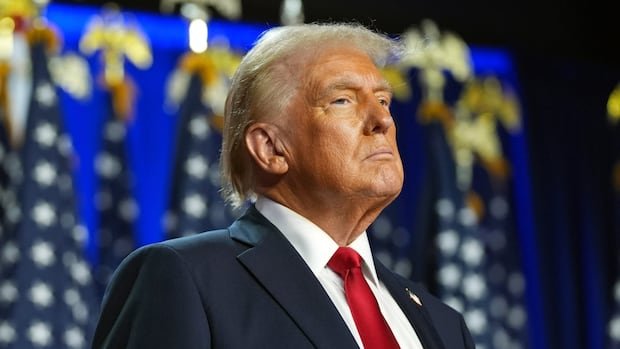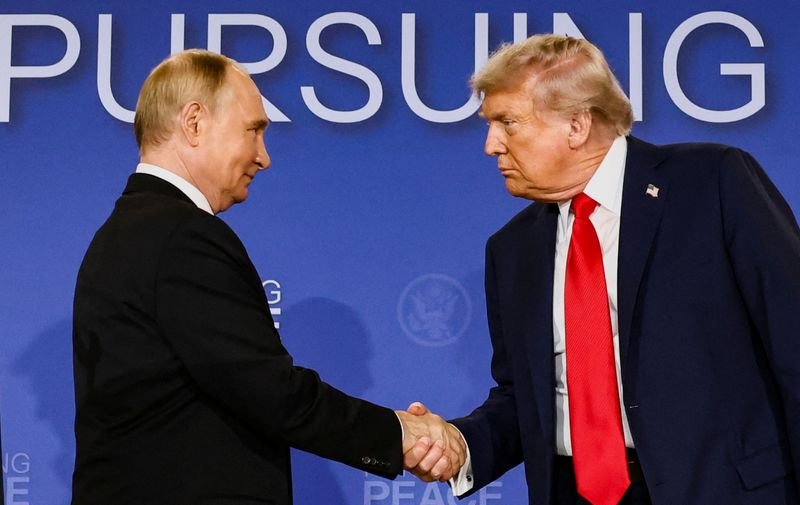
Outside the White House, just days before President-elect Donald Trump’s inauguration, preparations were underway for a ceremony that would be funded by a record number of corporate donations — including many first-time donors from the worlds of tech, artificial intelligence and crypto.
“I can see it from both sides,” Jr. said. Lopez, a tourist from Dalton, Ga., who was visiting the capital before Inauguration Day. Lopez said the ceremony – an American tradition celebrating the incoming president, with politicians from both sides of the aisle in attendance – should be a day for the people.
However, “if you have too much corporate influence in politics, it could cause problems. And it could overlook people’s interests (in favor of) big corporations,” he said.
Trump’s second inaugural fund has so far raised US$170 million, breaking the record he set in 2017 and eclipsing the total donations raised by Biden and Obama’s presidential inauguration committees, which the new administration appointed to organize inauguration day festivities.
The donations, though symbolic, show some corporations are vying for a friendly relationship with the president-elect, hoping to make good on promises of deregulation and claims to fire officials who lead watchdog agencies like the U.S. Securities and Exchange Commission and the Federal Trade Commission.
Others may offer the money as a mea culpa to Trump, who has publicly lashed out at the companies for insults against himincluding Meta’s Facebook — Trump once called the company an “enemy of the people” for banning him from its platform after the Jan. 6 riots.
But CEO Mark Zuckerberg recently praised the president-elect and acknowledged that the company is making changes, e.g. moving away from fact checkingto fit into the current political climate. He is attending the inauguration along with other tech executives such as Apple’s Tim Cook and OpenAI’s Sam Altman.
“Donations to the inaugural fund are basically currying favor and gaining access,” said Bruce Freed, president and co-founder of the Center for Political Accountability, a nonprofit that advocates for transparency in corporate political spending.
“They understand that the relationship with Trump will be transactional,” Freed added. “Even Trump has made it clear that he’s going to do whatever he wants, but he expects everyone to face off.”

Republican lobbyist Ozzie Palomo, who is co-founder and managing director of Chartwell Strategy Group in Washington, DC, said there was more uncertainty in 2017 when Trump first took office. “People were very reserved in social and public classification. That stigma is gone,” he said.
“Inauguration weekend is by no means an opportunity to address all of your policy concerns, but it does allow you to show face and start building those relationships with key stakeholders who will be in positions of power over the next four years.”
Which companies donated and how much?
CBC News reached out to 20 companies, many of which confirmed they had donated to Trump’s inaugural fund.
Boeing contributed $1 million to Trump’s inaugural fund this year, after donating the same amount to Biden’s 2021 inaugural fund and Trump’s first inaugural fund in 2017. A spokesman for the aerospace giant said the company was “pleased to continue Boeing’s bipartisan tradition of supporting the U.S. Presidential Inaugural.” committees.”
Google, Microsoft and Meta each donated a million dollars to the fund. An Uber spokesman said the ride-hailing company has donated $1 million to the fund (the same as its contribution to Biden’s 2021 ceremony) and that its CEO Dara Khosrowshahi has donated an additional $1 million this year.
An OpenAI spokesperson said Altman, its chief executive officer, made a personal donation of $1 million to the inaugural fund.
Front burner24:34Donald Trump’s billionaire administration
Spokesmen for oil giant Chevron, investment firm Goldman Sachs and carmaker Toyota confirmed the donations but did not confirm the amount. And a spokesperson for crypto company Ripple said it donated $5 million of its own cryptocurrency, called XRP, to the inauguration.
Amazon, Apple, Adobe, Pfizer, Hyundai and Delta Air Lines did not respond to a request for comment. Except for Pfizer, which donated an unspecified amount, all reportedly donated $1 million each to Trump’s inaugural fund.
Biden’s 2021 inauguration fund raised $62 million, but in-person celebrations were scaled back due to the COVID-19 pandemic. Obama raised a then-record $53 million for his inaugural fund in 2009, even with the donation cap — something that was removed for his 2013 inaugural fund, which brought in $43 million.

‘They don’t want to be on the president’s bad side’
The inauguration is generally seen as a non-partisan political event. But it can also be an opportunity for corporations to show their support for the president or the new administration, explained Brendan Glavin, director of insights at OpenSecrets, a US nonprofit that tracks money in politics.
“They don’t want to be bad for the president,” said Glavin. “If he’s angry with someone or because the company is doing something he doesn’t like, he has no qualms about going out and scolding them right away.
“I think it’s really a lot more at play this time than (in) the past with different presidents,” he said. “I think past experience dictates some of the action in this.”
Although the inaugural fund may receive a small sum from Congress to cover all municipal services associated with the event, the funds are mostly financed by donations from individuals and corporations.
Corporations aren’t allowed to donate directly to presidential campaigns — they can donate indirectly to political action committees or other groups that support a particular candidate — but they mostly stay out of politics so as not to alienate their consumer base, Glavin explained.
While the ban on foreign donations is still in place, the inaugural funds are not managed the same restrictions as election campaigns. Some corporations self-publish. By the way, the presidential inauguration committee has 90 days release a full list of donors to the Federal Election Commission.
‘If you’re not at the table, you’re on the menu’
Several industries stand out on the list of companies donating to Trump’s inaugural fund.
For the first time, several crypto companies including Ripple, Robinhood and Coinbase are said to donating to the fund, reflecting a desire to make inroads with an administration that has enthusiastically embraced the industry and even named a “crypto czar.”
“They see this as an opportunity to sort of put in place a more formal regulatory structure to legitimize operations in their world. And this is kind of their political entertainment,” Palomo said.
Corporate America is “reading the tea leaves,” he added. “This isn’t necessarily about Donald Trump per se, but it’s about Donald Trump’s voters… From a business perspective, they need his voters to kind of buy what they’re selling.
“There’s an old saying here that if you’re not at the table, you’re on the menu. And I think people are trying to figure out how to be at the table where decisions are made.”







